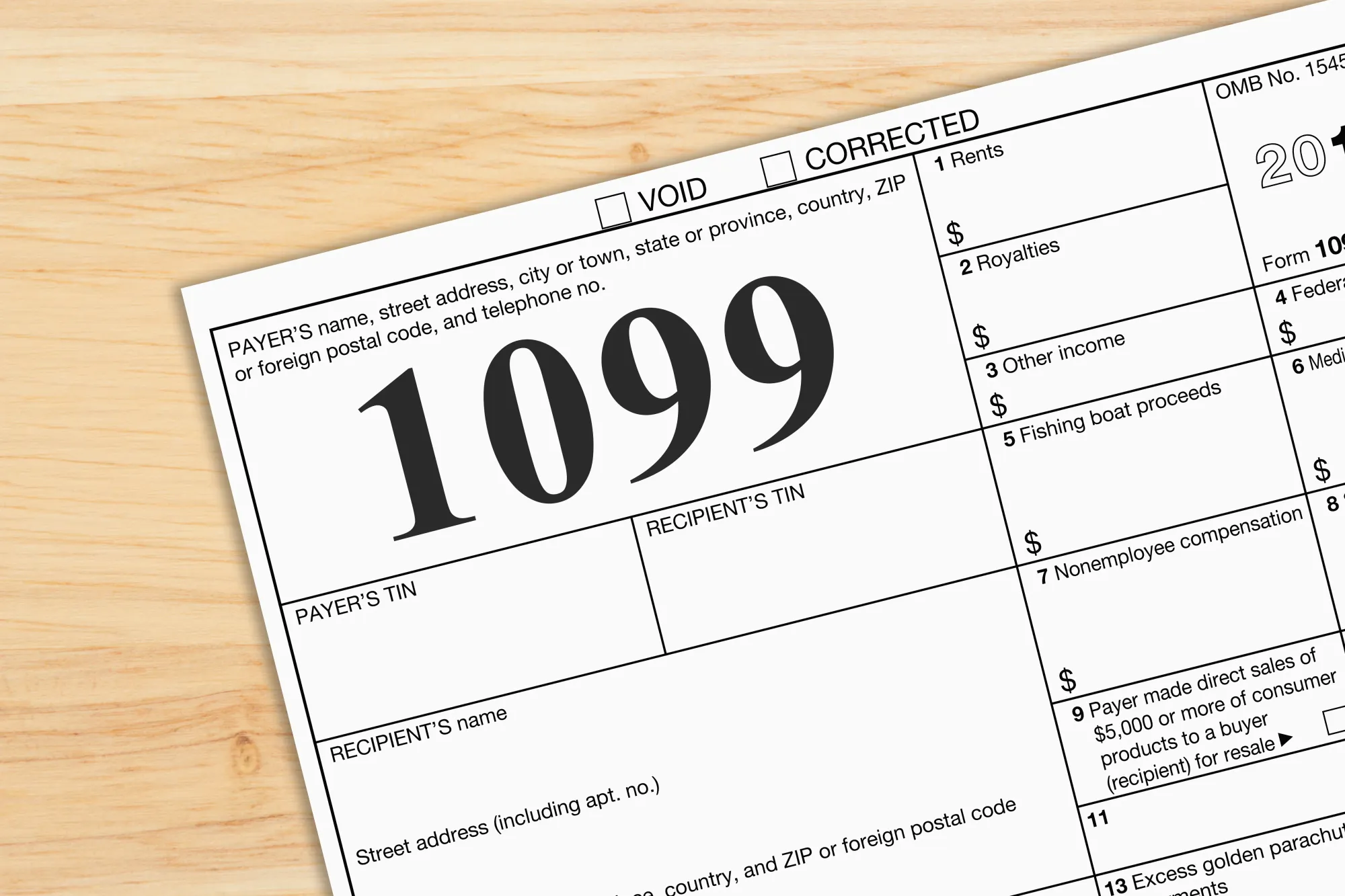What You Need to Know about OBBBA's New 1099 Filing Rules

The IRS requires businesses to report certain payments made to independent contractors using Form 1099-NEC.
Likewise, payments processed through third-party platforms like PayPal are reported on Form 1099-K when they exceed specific thresholds.
Recently, the One Big Beautiful Bill Act (OBBBA) has introduced changes to these reporting rules, adjusting thresholds and ultimately reducing the number of forms that need to be filed.
New $2,000 1099-NEC Filing Threshold
Currently, if a business pays an unincorporated independent contractor (non-employee) $600 or more for services during the year by check, cash, or direct deposit for business-related services, it must file IRS Form 1099-NEC, telling the IRS how much it paid the contractor.
The form must also be filed when a lawyer or physician is paid $600 or more for business-related professional services, even when they are incorporated.
The $600 threshold for filing Form 1099-NEC was originally established in 1954 and never indexed for inflation. That's about to change thanks to the OBBBA.
Starting in 2026 (that is, for payments made in 2026 and later), the threshold for filing Form 1099-NEC goes up to $2,000. Moreover, starting in 2027, the threshold will be adjusted for inflation each year in $100 increments. This should substantially reduce the number of 1099-NEC forms hiring firms have to file each year, relieving them of an administrative burden.
There is a big exception to 1099-NEC reporting: a business never has to file a 1099-NEC, however much the amount involved, if it pays an independent contractor.
- through a third-party settlement organization (TPSO) such as PayPal or Payable,
- by credit card, or
- by debit card.
Such payments are reported by the TPSO on Form 1099-K as described below.
Form 1099-MISC is used to report non-wage income not covered by another 1099 form.
The Form 1099-MISC will be subject to the same $2,000 threshold as Form 1099-NEC for 2026 and later.
Form 1099-K Filing Thresholds
IRS Form 1099-K, Payment Card and Third Party Network Transactions, is used to report payments from third-party settlement organization (TPSOs) as well as debit card payments.
TPSOs include
- payment apps like PayPal, Cash App, and Venmo;
- online auction or marketplace services such as eBay and Amazon;
- gig economy platforms such as Uber, Airbnb, Upwork, and TaskRabbit
- some crypto currency processors such as BitPay
- craft or maker marketplaces like Etsy
- ticket exchange or resale sites like Ticket Master; and
- some crowdfunding platforms.
Previously, the 1099-K threshold was set to drop to $5,000 in 2025 and then to $600 in 2026—potentially triggering billions of filings. However, the OBBBA reverses this change.
Effective retroactively to 2022 (yep, three years ago), TPSOs need to file Form 1099-K if both of the following apply:
- The recipient is paid more than $20,000.
- The recipient has more than 200 transactions during the year.
This rollback to the 2022 threshold means far fewer Forms 1099-K will be issued. Both TPSOs and recipients can breathe a sigh of relief.
A Final Reminder
Regardless of whether a 1099 form is issued, all taxpayers must report all taxable income on their tax returns—even if it’s not reported to the IRS by a third party.
